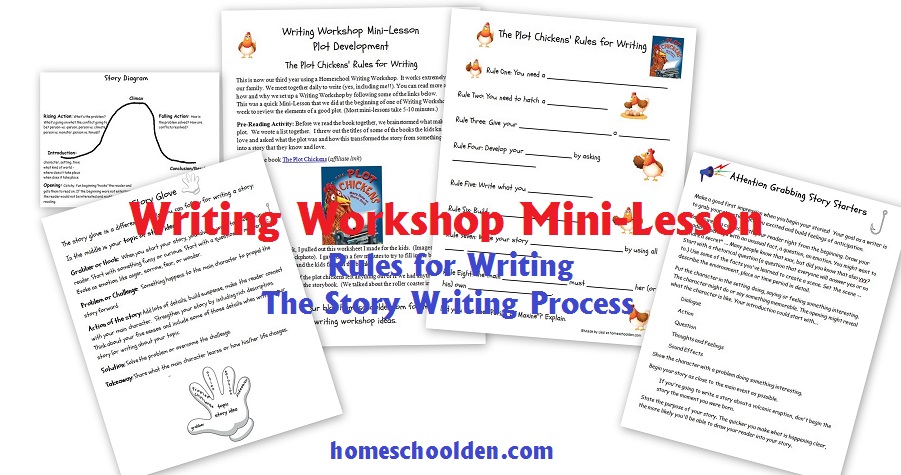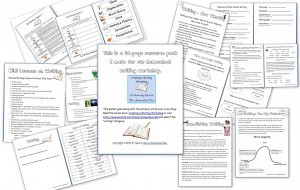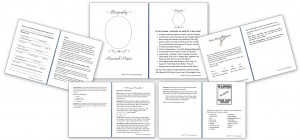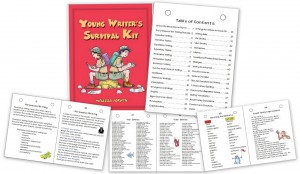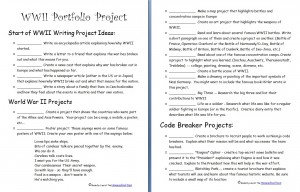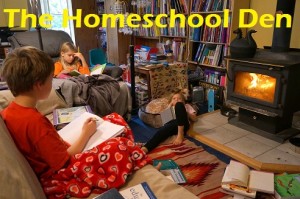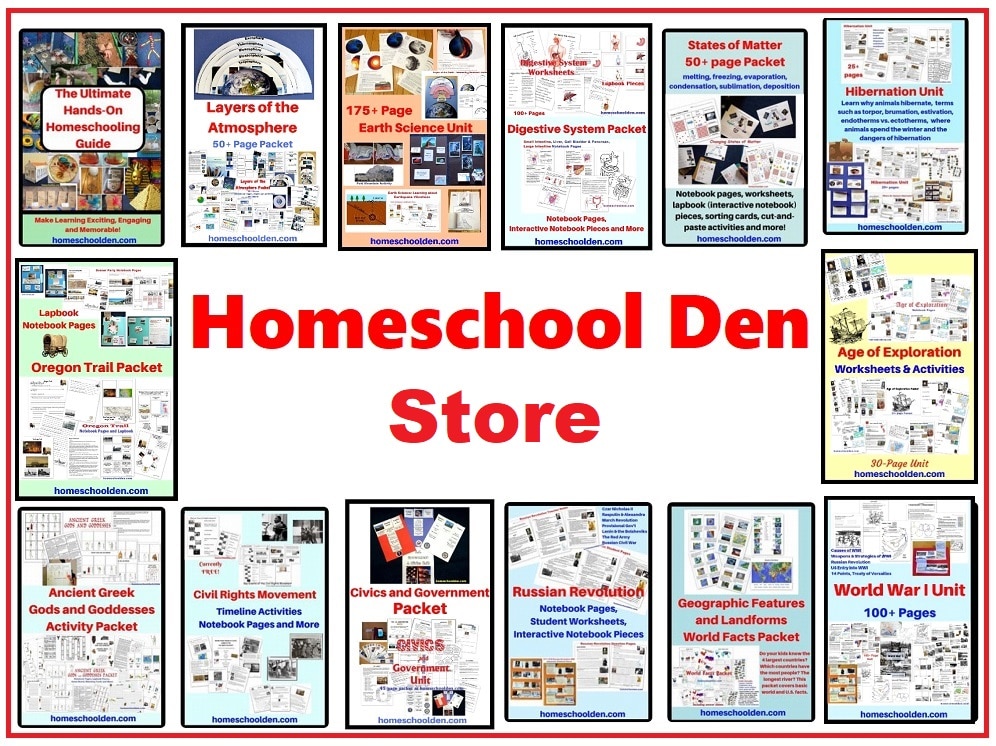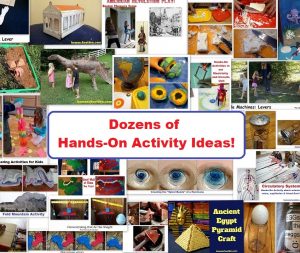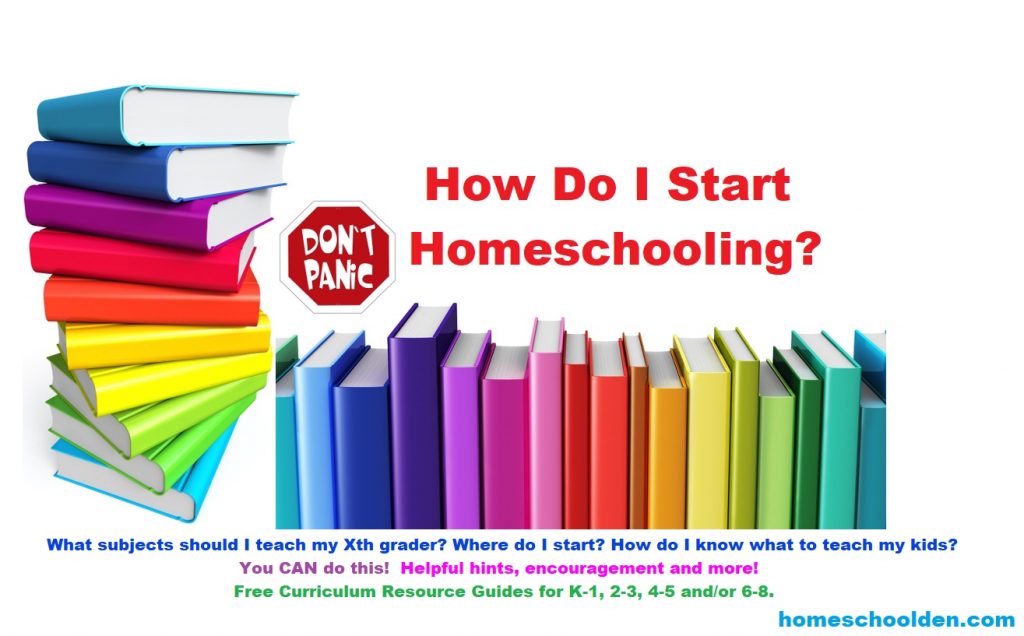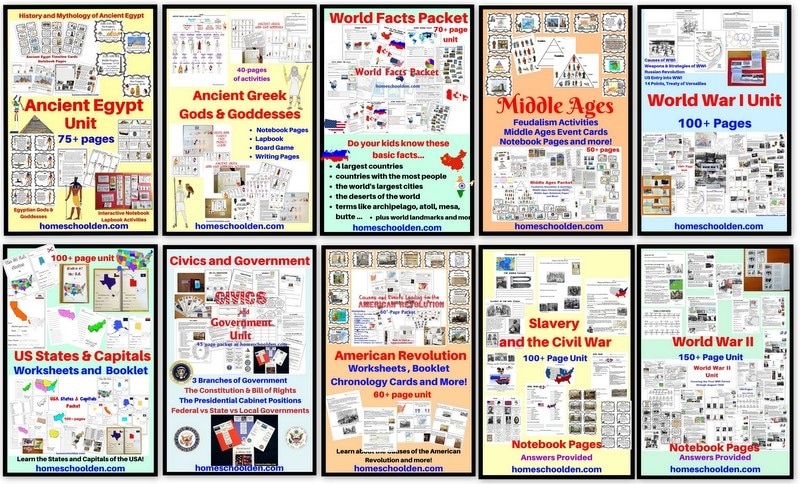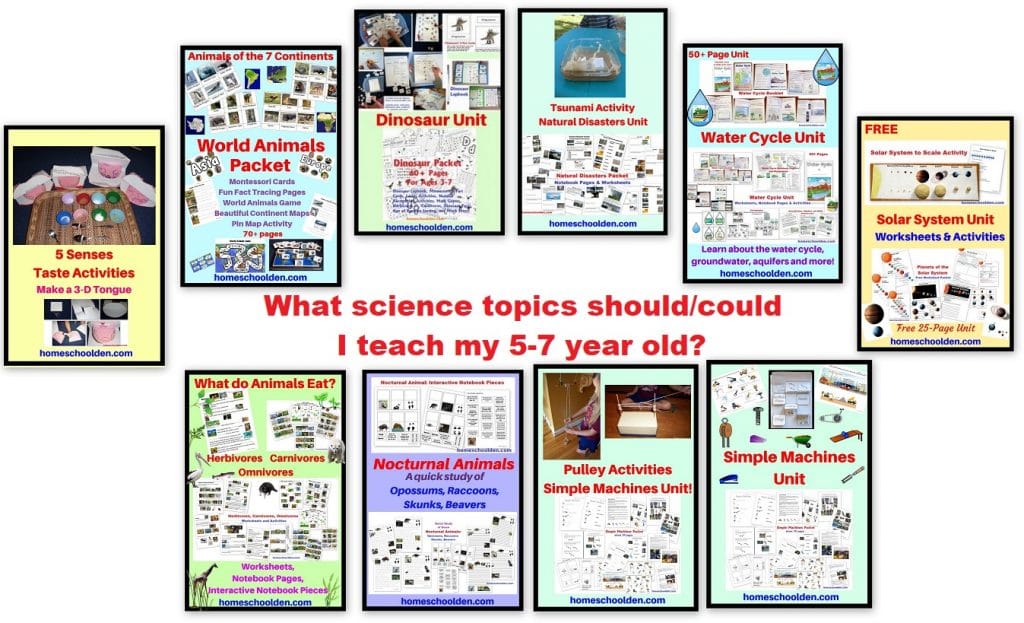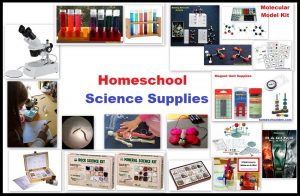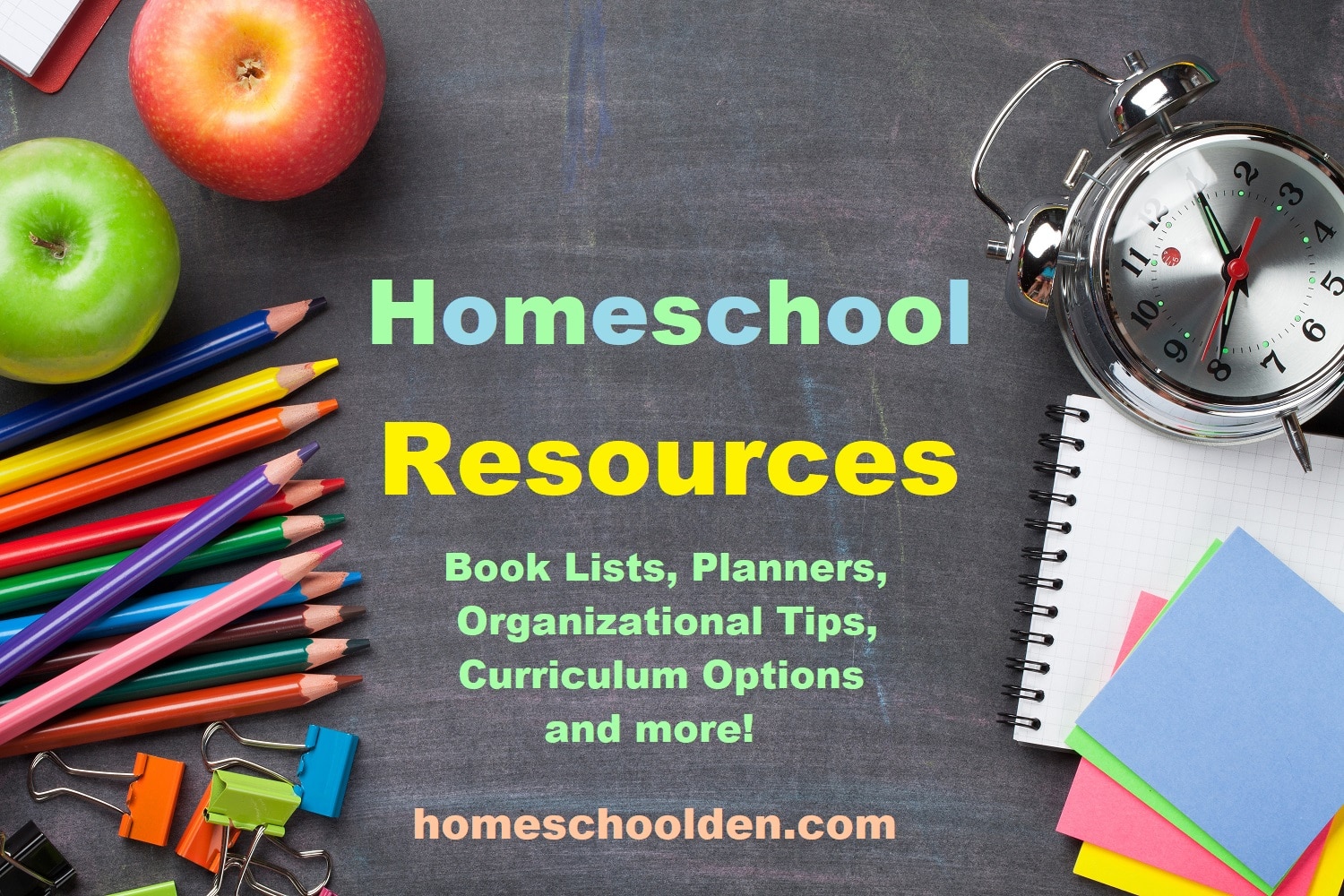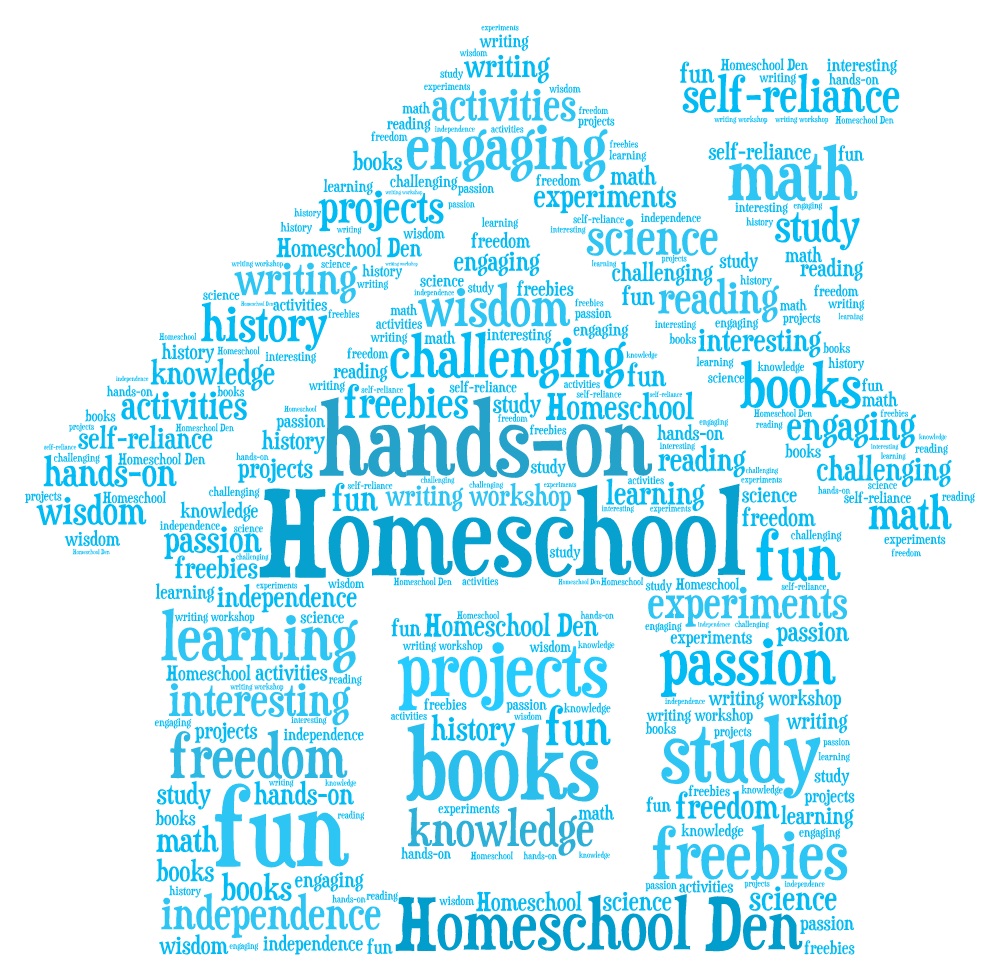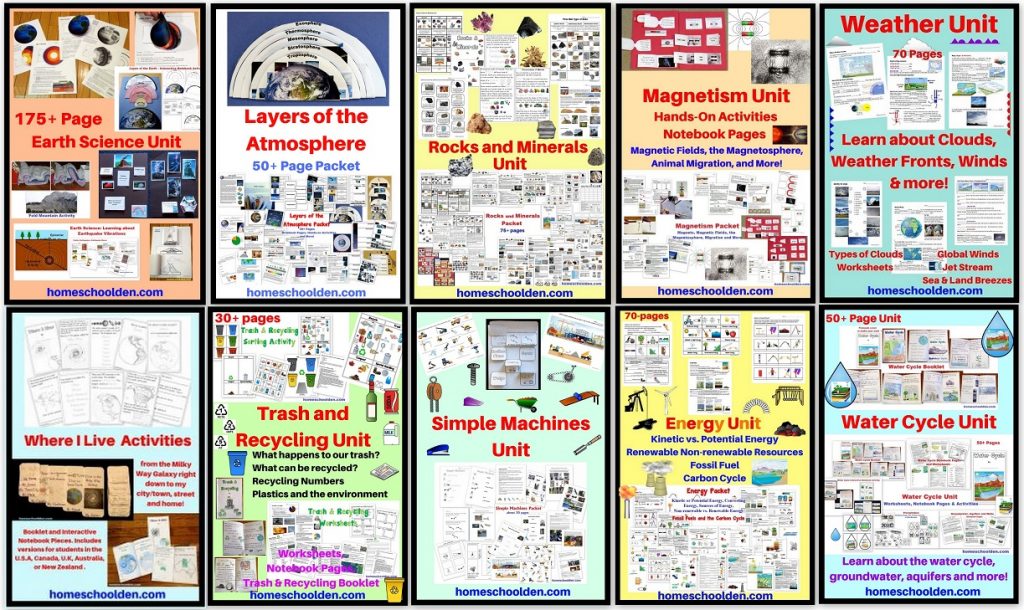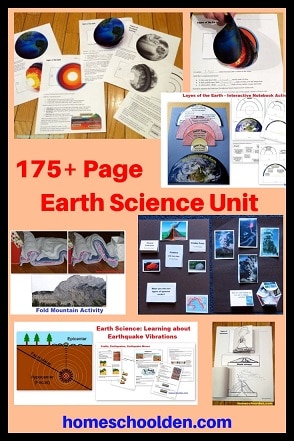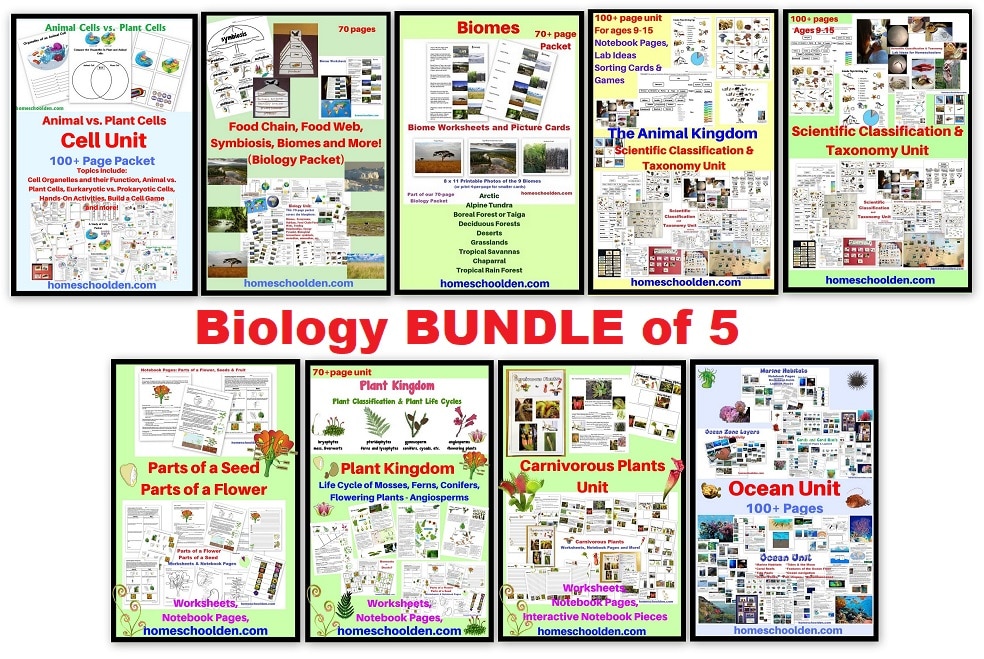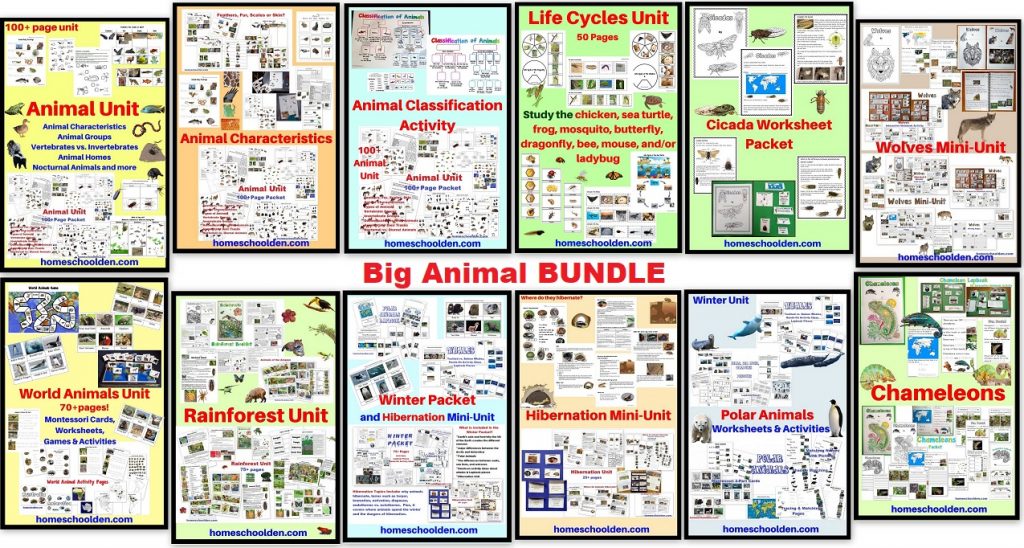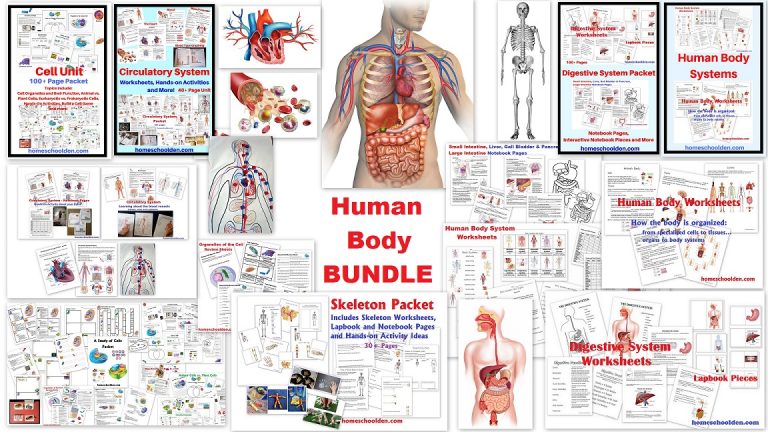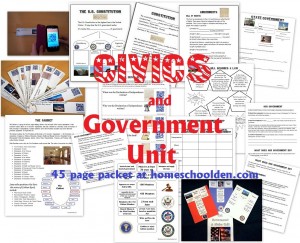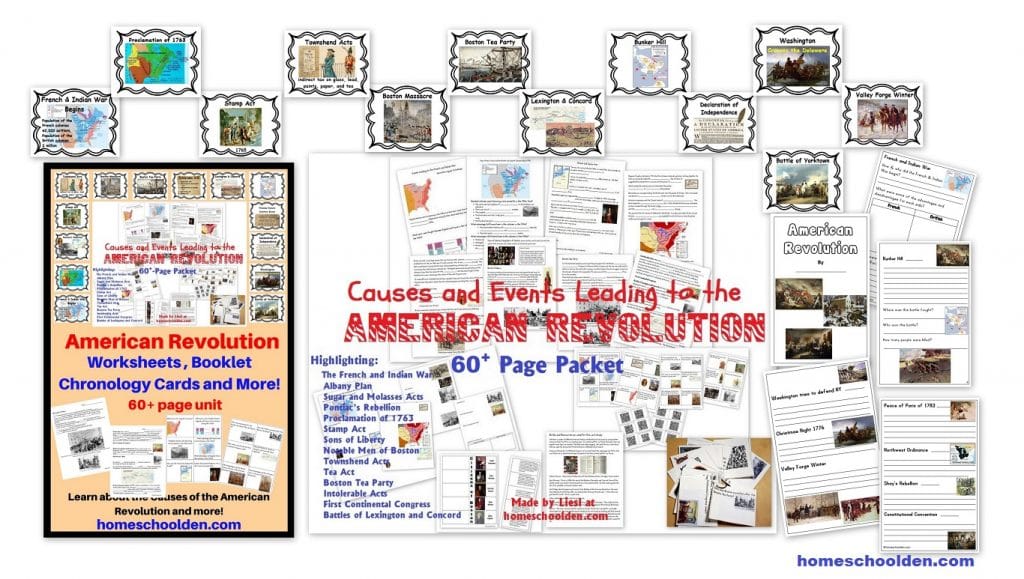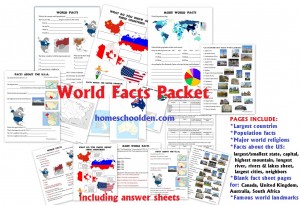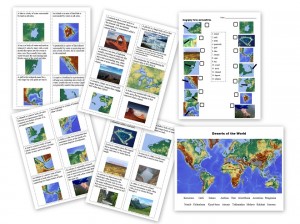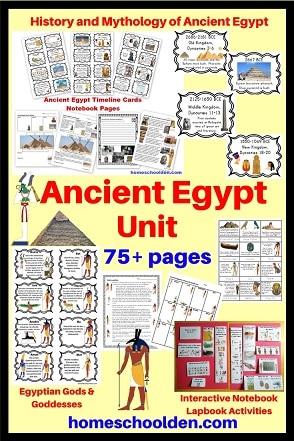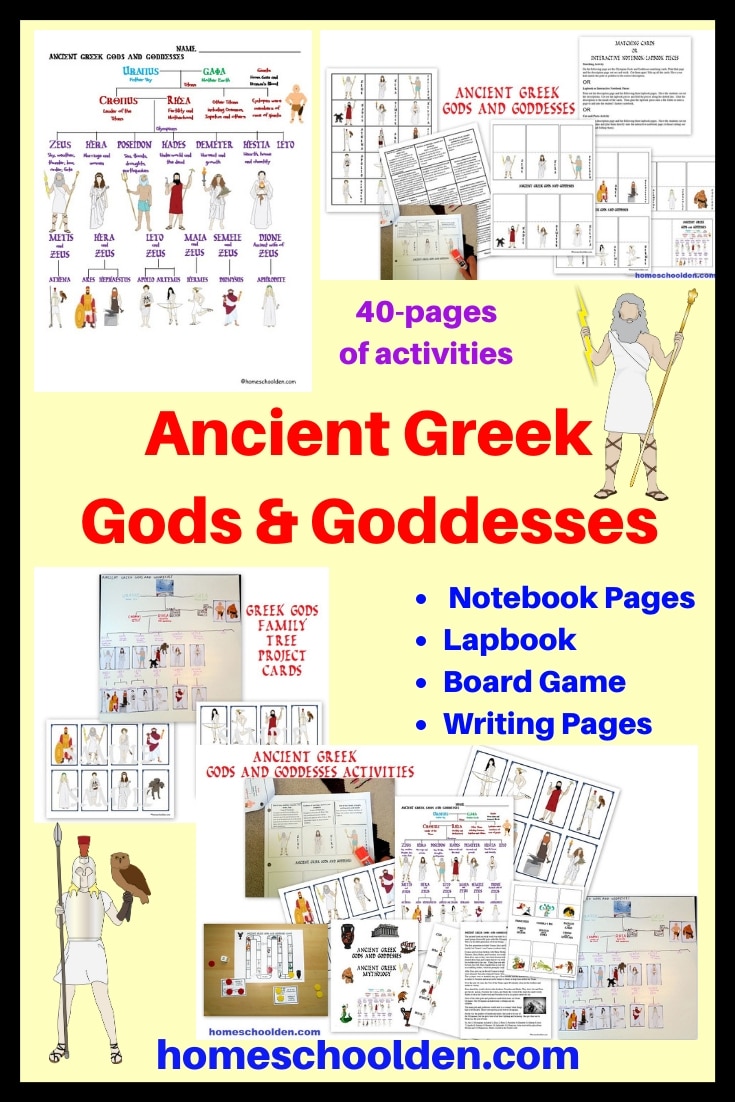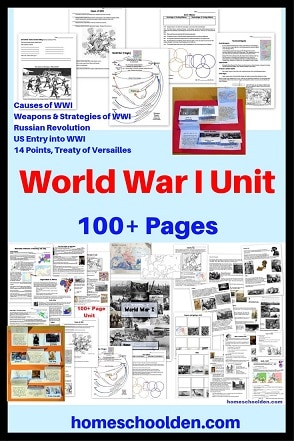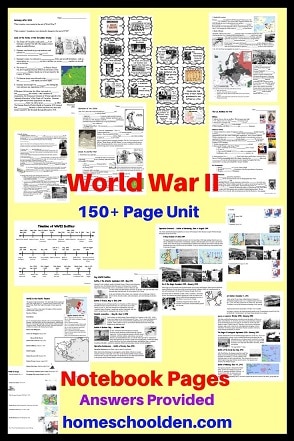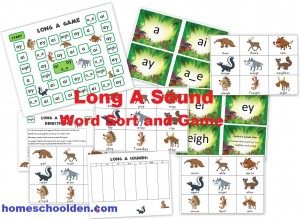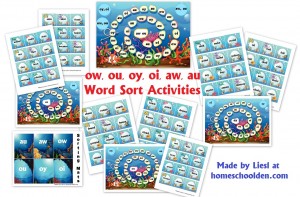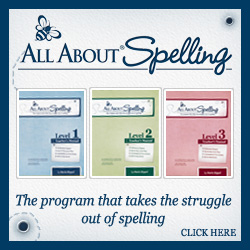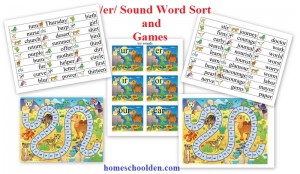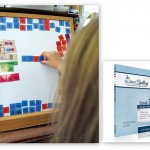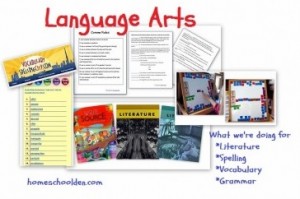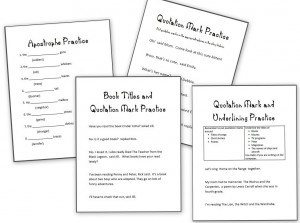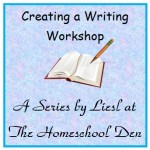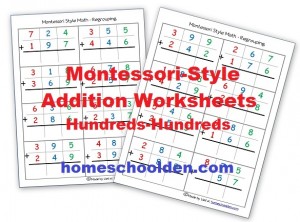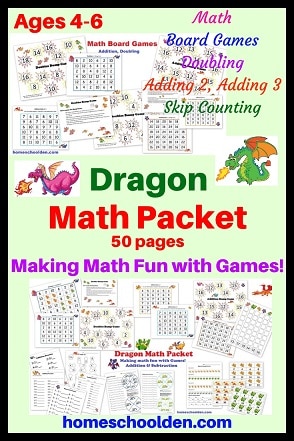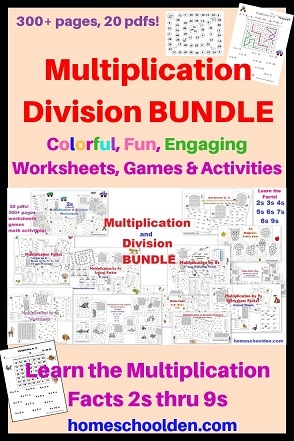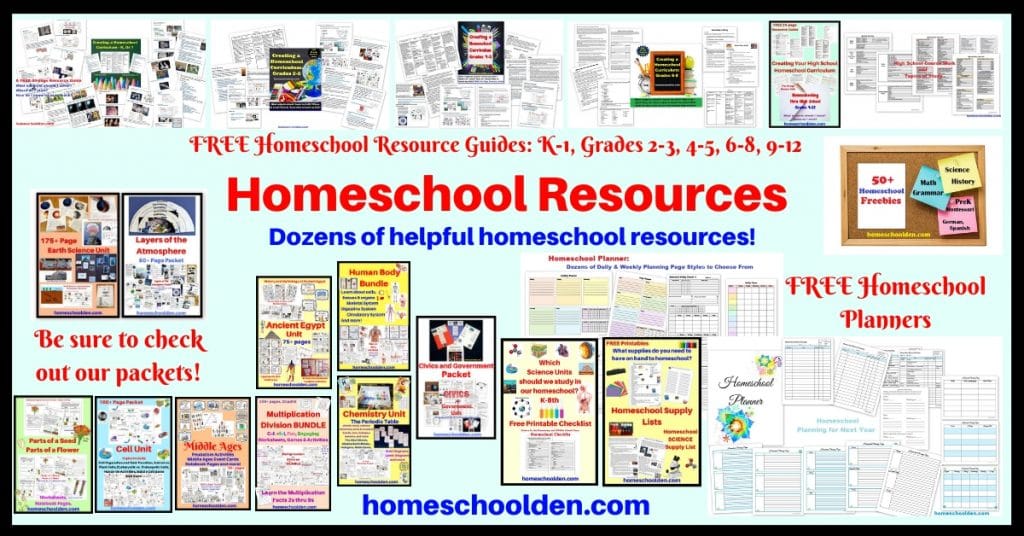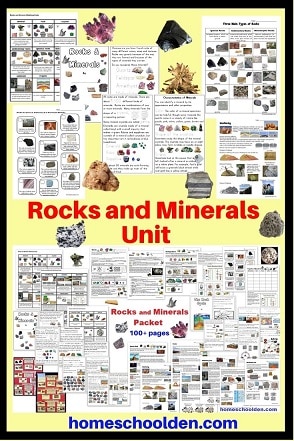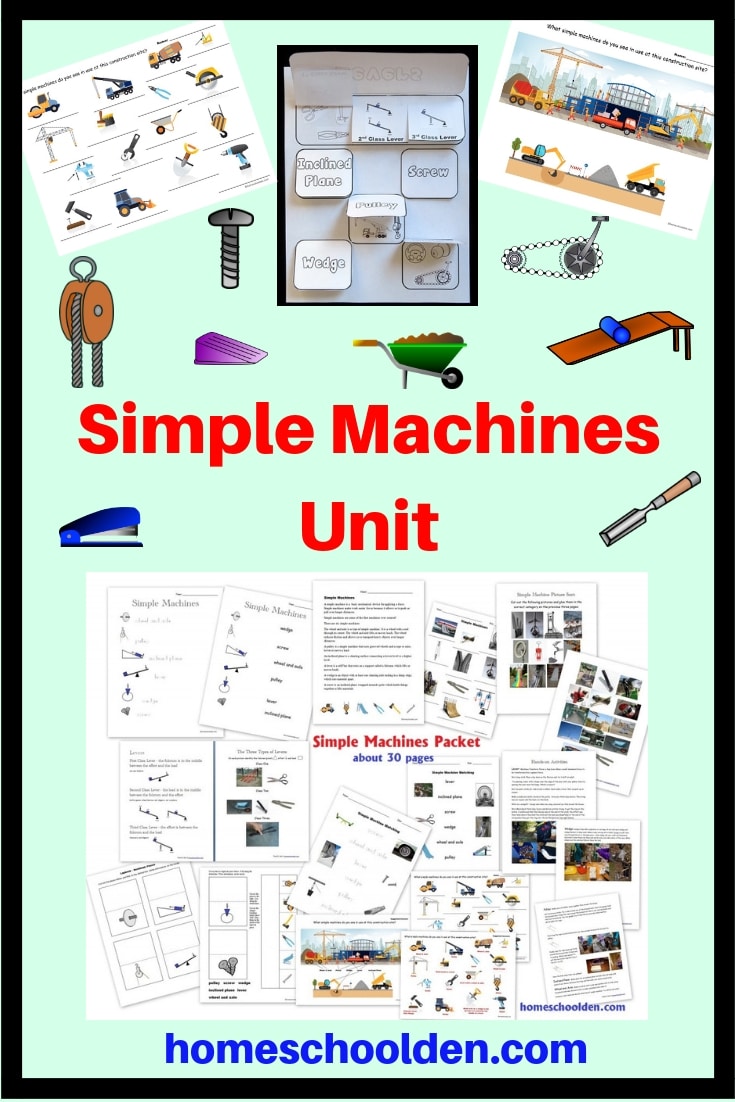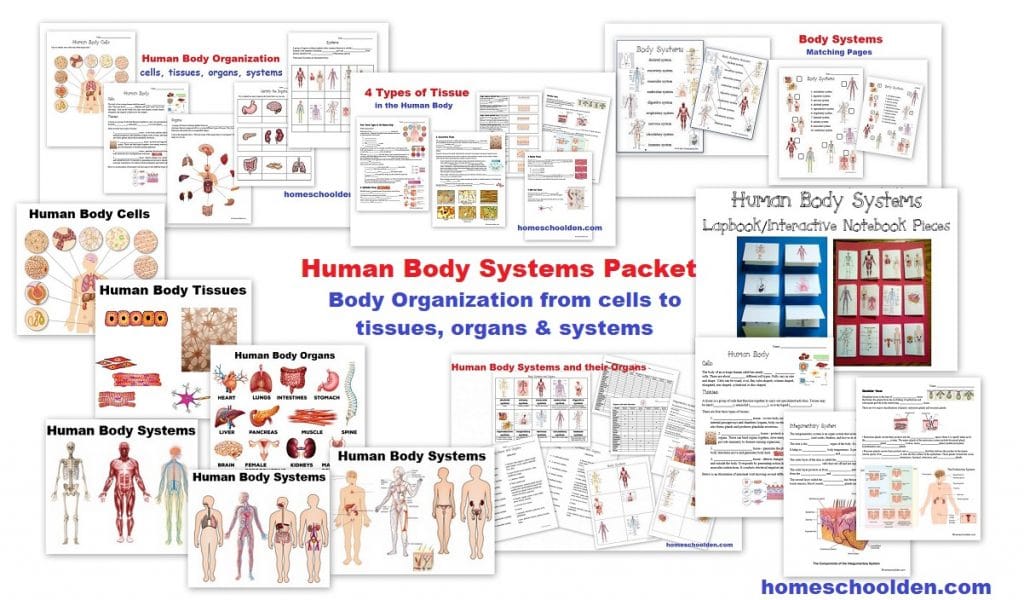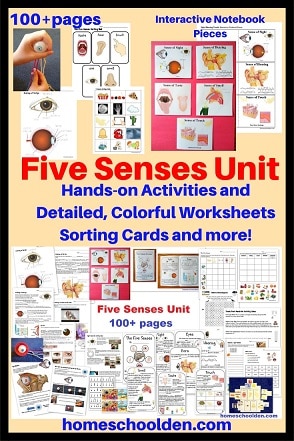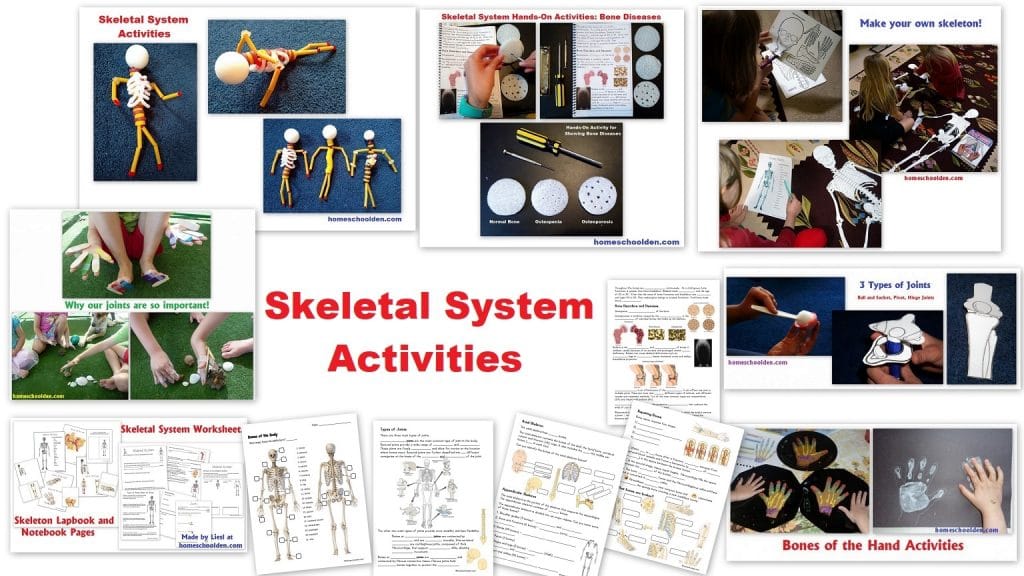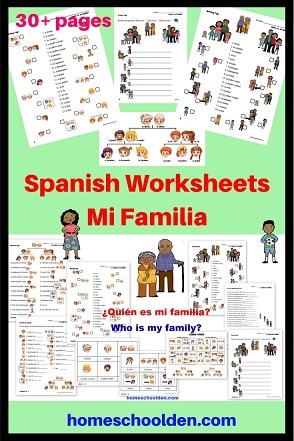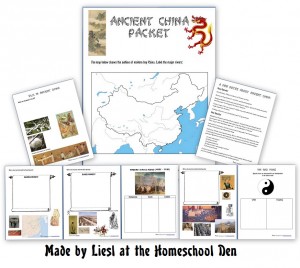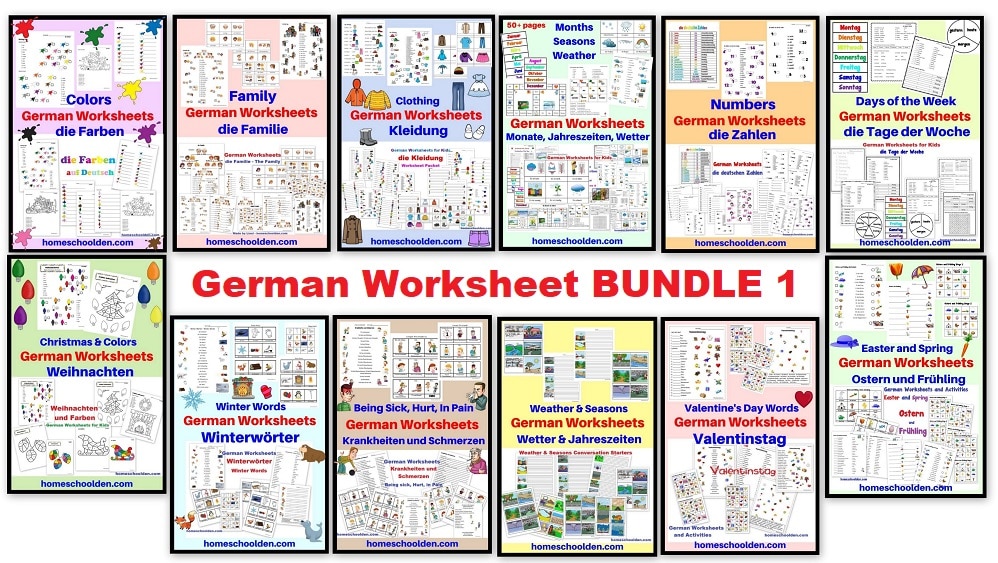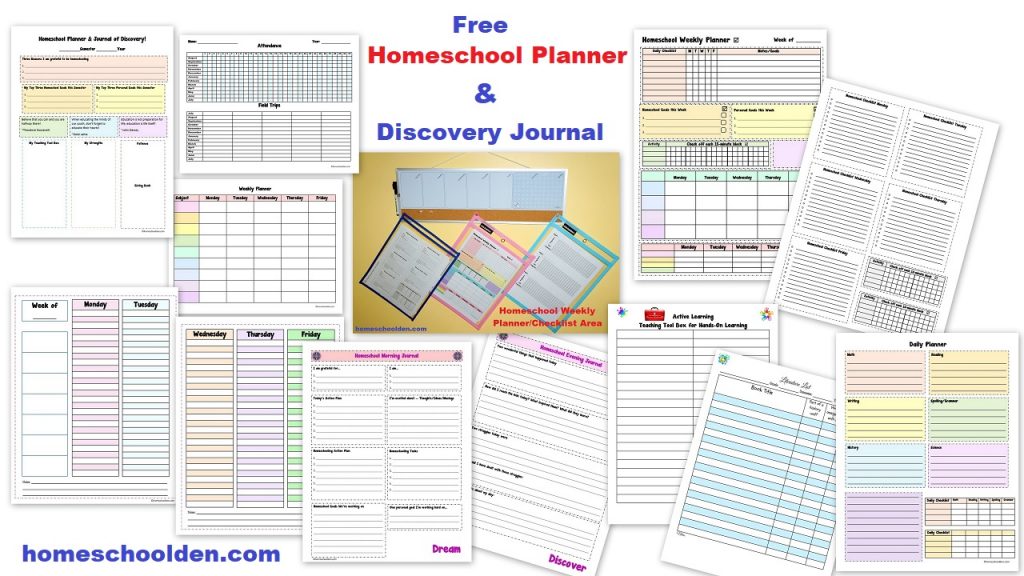Writing Workshop Mini-Lesson: Rules for Writing and the Story Writing Process
Have your kids read the Plot Chicken? We started our Writing Workshop off with this book. What a great buk, buk!! In fact, I liked it so much that I created a chicken writing rules printable to go along with the book (free to download down below)!!! So, in this post I want to share some of our Writing Workshop Mini-Lessons about the Story Writing Process & Story Structure.
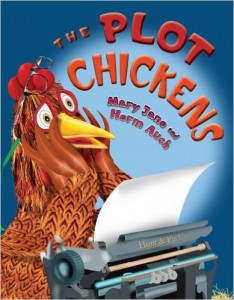
As many of you know, we use a Homeschool Writing Workshop. (We went to this model about two years ago. Read more about that following the links below.) The kids were excited to get back to writing regularly again! (Hooray for that!). Our Writing Workshop generally consists of three parts
1) Mini-Lesson of the Day (about 10 mins)
2) 15 minutes of reading: The kids really* like their new literature books! ED (Gr.2) is using … DD and LD both really like the selections in their Lit textbooks. So, we’ll definitely be keeping those in our schedule.
3) Writing time: (about 20 mins.) Even Mom sits down with a journal and spends time focused just on writing. I strong discourage anyone from talking & try not to allow anyone to ask how to spell something.
Today I want to share some of the mini-lessons that went really well for us the past couple of weeks.
Mini-Lesson: Plot Chickens’ Rules for writing
The Plot Chicken was a fun way to start off the year. This is a story of a chicken who decides it wants to write a story. Along the way, it learned (in a humorous way) all lessons it needed to know about the writing process. After we read the book, I gave the kids a worksheet that I made to see if they could remember all the rules Chicken had learned along the way.
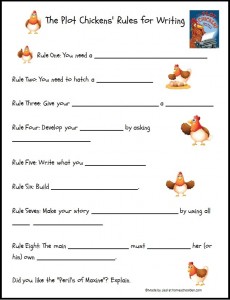
We talked about the story diagram… You know, the one that looks like a roller coaster:
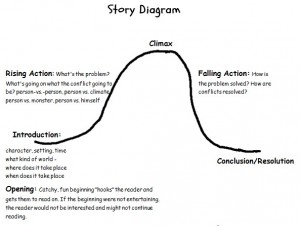
Another day we did another mini-lesson on the story writing process. This time we used a different analogy about how stories unfold. This one was laid out Melissa Forney in Razzle Dazzle Writing (affiliate link) and is called the “story glove.” We went over the main points in this analogy:
- Topic or Story Idea
- Grabber or Hook
- Problem or Challenge
- Action of the Story
- Takeaway
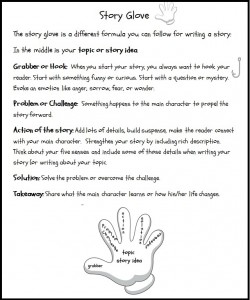
Last year, we started off with children’s books that highlight different values (like friendship, honor, bravery). This year, our back-to-school theme was/is historical fiction. Some of the books we’re read and discussed in our writing workshop included (these are all affiliate links):
- Katie’s Trunk (Set in the Revolutionary War)
- The Scarlet Stockings Spy (Set in 1777 about a girl who becomes a spy in Philadelphia)
- Redcoats and Petticoats (Also set in the Revolutionary war about a Patriot family. We haven’t read this one in our WW yet, but I can’t wait to compare this to the Scarlet Stocking Spy!)
- Nettie’s Trip South (Set just prior to the Civil War about a girls who meets slaves and the dehumanizing aspects of slavery for the first time; based on someone’s diary)
- Journey to Freedom: A Story of the Underground Railroad (Set just prior to the Civil War after the Fugitive Slave Law was passed)
- The Last Brother: A Civil War Tale (Set at Gettysburg in the Civil War about a young 11-year-old bugler who learns how complicated war is.)
- Dakota Dugout (Set after the Civil War and shows life out on the prairie)
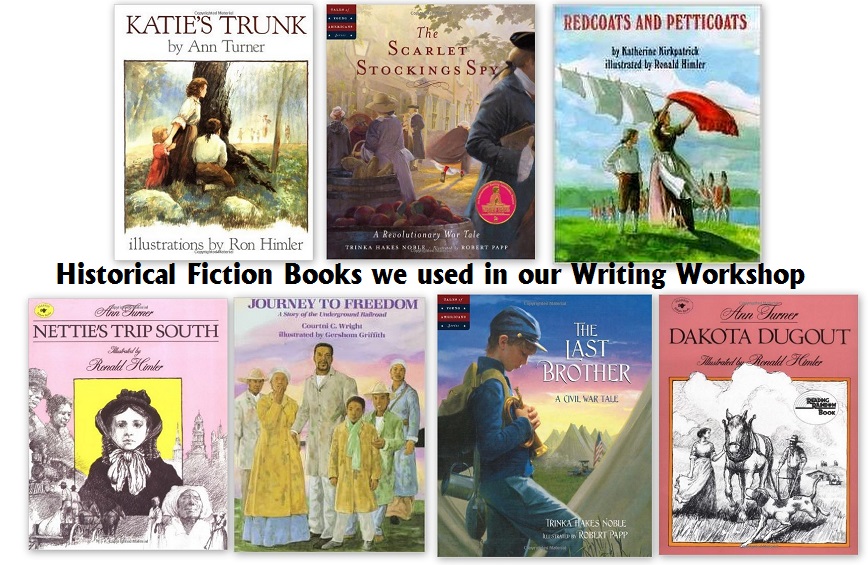
If you want to save this Writing Workshop Mini-Lesson for later, I’ve made a free pdf that you can download. It is about 10 pages.
Writing Workshop: Rules-for-Writing, Plot Development, Story Diagrams
Disclosure: Please note that some of the links above are affiliate links, and at no additional cost to you, I will earn a commission if you decide to make a purchase. Your purchases help support the blog! If you do wind up making a purchase, thank you!!
Other Mini-Lessons to Use in a Writing Workshop (in any order):
- What makes a good book or story?
- Make your story come alive with details and description.
- Creating Interesting Characters
- Story Openings: Set the mood or feeling of your story
- Gathering story ideas from your own life
- Alliteration and more
- Adding Details Exercise (Don’t miss this one, the kids LOVED this activity!!)
- Writing Workshop: Conflict in Literature (Man vs. Man, Man vs. Self, etc)
- Writing Workshop Discussion Questions
How and Why We Started Using a Homeschool Writing Workshop and Other Writing Workshop Resources on our Blog:
- Creating a Homeschool Writing Workshop – Post #1 — How/Why we needed a change in our writing program
- Creating a Homeschool Writing Workshop – Post #2: Creating a Writing Workshop Area and Materials to Have on Hand
- Creating a Writing Workshop Post #3: This post is about Mini-Lessons during writing time, mentor texts and includes reviews of 8 or 9 writing books that you might find helpful.
- Writing Resource Pack: This is a post about the 30-page pack I made for our writing workshop. Reference pages on the 6 +1 Wri ting Traits, Mini-Lessons, the types of writing, creating a powerful beginning, techniques for ending a story/paper, and so forth. (These writing resources are free to download.)
- Writing Workshop: Dr. Seuss Style: The kids and I had fun writing in the style of Dr. Seuss!
- Biography Research Paper Resource Pack
- Practical Pointers for Working with a Reluctant Writer (or any Writer)
- Writing Activity to Spark Kids’ Imagination! My girls really loved this activity!
- 40 Journal Writing Prompts (Free Printable)
- Animal Portfolio Project: writing, art and geography activities that go with any animals… With many activities to choose from. Writing activities include both fiction and non-fiction suggestions such as
- Write a speech or a letter to the president on why your animal needs protection in the wild.
- Menu: Create a humorous menu at a restaurant where your animals would like to eat.
- WWII Portfolio Project
- Writing Workshop: What we’re doing for writing this fall
- Writing Workshop Rules! Why the Writing Workshop continues to work so well in our homeschool.
That’s about it for today! See you again soon here or at our Homeschool Den Facebook Page!
